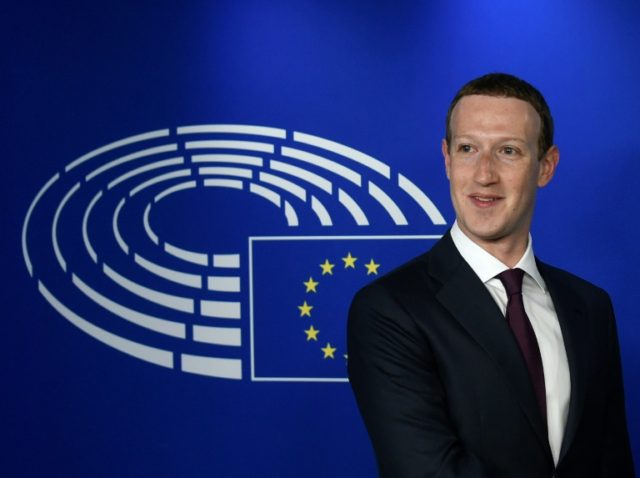Politico recently profiled Facebook’s new “European election war room” ahead of upcoming E.U. elections.
A recent report from Politico provides an insight into Facebook’s new “election war room” established ahead of the upcoming European election. Facebook has previously deployed a similar “war room” in the United States ahead of the midterm elections in November 2018. In October, Breitbart News reported on the war room providing an insight into the aim of the project. Facebook’s Product Manager of Civic Engagement, Samidh Chakrabarti, said in an interview that the war room is a physical room which will be used to “take quick and decisive action” against possible cases of foreign interference during the midterm elections.
“We have many measures that we’ve put in place to try to prevent problems: the political ad transparency, blocking fake accounts, combating foreign interference, and preventing the spread of misinformation. But we know we have to be ready for anything that happens,” stated Chakrabarti. “And so that’s why we’ve been building this war room, a physical war room [with] people across the company, of all different disciplines, who are there. So, as we discover problems that may come up in the hours leading up to the election, we can take quick and decisive action.”
Now, Politico has reported on the company’s efforts to establish a similar project in Dublin, Ireland ahead of the upcoming European elections. Politico described the project writing:
The group of twentysomething coders, engineers and content specialists sit hunched over multiple screens, scanning the platform for potential illegal behavior. Wall-mounted television monitors keep them up to date on the latest chatter on the world’s largest social network, Instagram and WhatsApp. A single European Union flag hangs on the wall, next to a poster emblazoned with the slogan “New Ways of Seeing.”
Yet despite Facebook’s 40-person European election “operations center,” which got underway on April 29, the tech giant is struggling to keep on top of the threats.
Political groups from Hungary to Spain have been able to circumvent Facebook’s new political transparency tools to quietly buy partisan social media advertising aimed at swaying potential voters, according to an analysis by POLITICO. That includes paid-for messages by Viktor Orbán, the Hungarian prime minister, Verein Recht und Freiheit (Association for the Conservation of the Rule of Law and Civil Liberties), a support group for right-wing politicians in Germany and Petra De Sutter, a Belgian candidate for the Green Party.
It seems that Facebook is aware, however, of accusations of censorship and bias. The company’s chief lobbyist in Europe told Politico that Facebook is avoiding taking too harsh a line on the content allowed on the platform:
“We recognize that some people think we should remove everything,” said Richard Allan, Facebook’s chief lobbyist in Europe, in reference to the reams of political content now flooding the digital platform. “But we have concerns of removing everything during a political election.”
“We don’t believe it’s the right place to be for us to be the regulator of political campaigns,” he added. Facebook may not want the role, but its global reach puts it at the heart of the democratic process from France to the Philippines.
Politico described the new Dublin team tasked with monitoring misinformation, writing:
The team, which includes speakers of all of the EU’s 24 official languages, is split along national boundaries, with specialists — primarily men who would not look out of place in any startup office — monitoring activity on both Facebook’s social media platforms and those of rivals, notably Google and Twitter.
Facebook would not say how much content the group reviews daily, though each Facebook staffer had multiple screens open monitoring news events and other political discussions online.
Once an issue is flagged, Facebook’s engineers can then work with their counterparts across Europe and elsewhere to determine if the activity infringes the company’s standards, and then delete, play down or leave the content on the network, depending on the outcome. Topics for review include possible misinformation, voter suppression and hate speech, and the company said that it had investigated hundreds of incidents within the last week.
“Even though we’re a tech company, speaking face to face is invaluable,” said Sturdy, the Facebook executive.
Read more about Facebook’s EU War Room at Politico here.
Lucas Nolan is a reporter for Breitbart News covering issues of free speech and online censorship. Follow him on Twitter @LucasNolan or email him at lnolan@breitbart.com

COMMENTS
Please let us know if you're having issues with commenting.